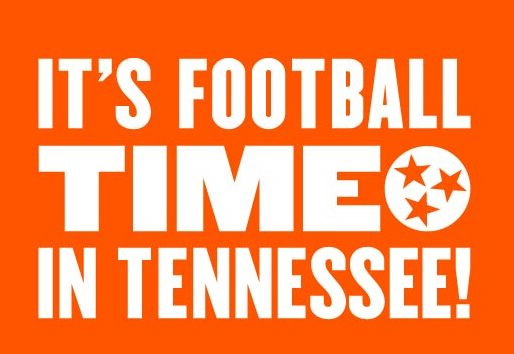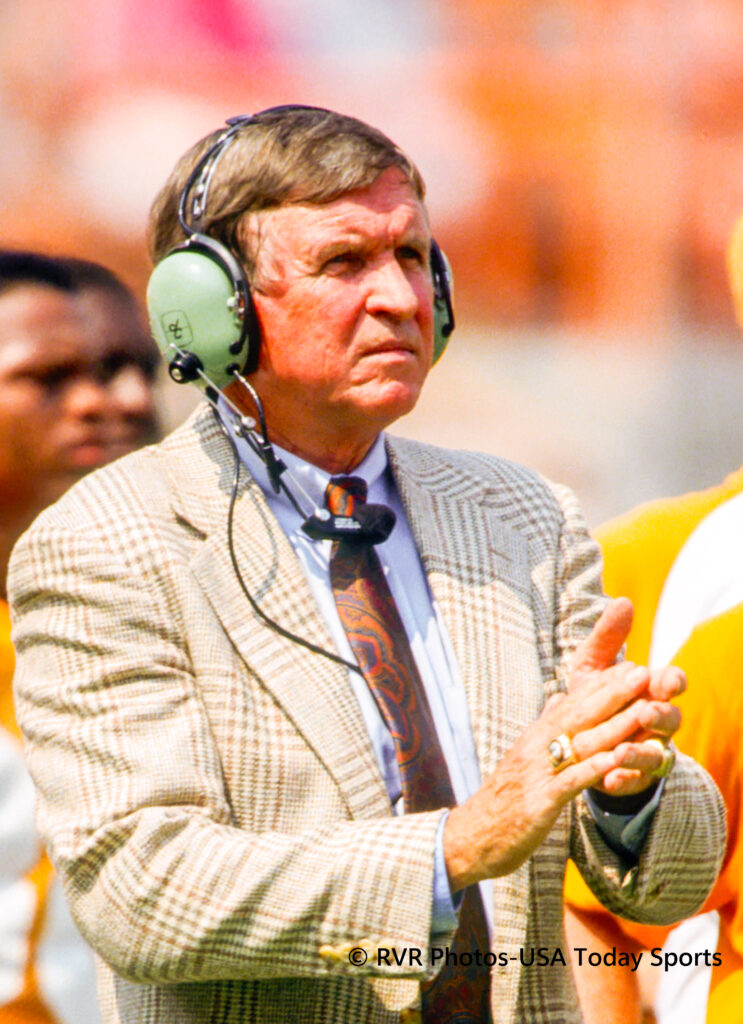The Early Years & College Football Playing Career
Born on 21st May 1935 in Lynchburg, Tennessee, John (Johnny) Terrill Majors was a famed college football coach and professional player himself.
Majors initially attended Lynchburg High School, however he and his family moved to Huntland shortly after. He attended Huntland High School in Franklin County where he played for the school football team, the Huntland Hornets. It’s clear that a natural talent for football ran in the family, as his father Shirley was the head coach at Huntland and later became a coach at the University of the South, Sewanee.
Johnny Majors excelled on the team, holding the State Overall Scoring Leader record in football for three years in a row between 1950 and 1952. During his high school years at Huntland he amassed a total of 564 points (213 of which were as a senior) and was notably part of the 1951 team that won the state championships. During his final year at Huntland, he notched an amazing 2,550 rushing yards with an average of 17.7 yards per carry.
It’s no surprise then, that he was a top pick for college recruiters with some of the most renowned colleges such as Arkansas and Wyoming making him offers.
He eventually decided to stay true to his roots, and enrolled at the University of Tennessee following high school, and played for the Volunteers during his time in college. He played as tailback, and had an excellent record leading his team to an undefeated 10-0 season record, which also resulted in the team reaching the Sugar Bowl. Majors was also fortunate enough to be one of the 127 freshmen recruited by General Robert Neyland in his last year as coach.
Known as the “triple threat tailback” due to his great skill in punting, running and passing, the Nashville Banner voted him player of the year in the Southeastern Conference for 1955 and 1956. His stellar record as a Volunteer consisted of 1,622 rushing yards, 15 touchdowns with 80 for 148 (54.1%) pass completions. During his time on the squad with the Volunteers, they were 20-10-1 and he returned 36 punts with a 12.2 average in addition to one touchdown and 15 kickoff returns with a 22.9 yard average.
He was also All-Southeastern Conference (SEC) twice, NCAA All-American and even the runner up for the Heisman Trophy in 1956.
After college, Majors moved to Montreal to play for the Canadian Football League (CFL). He played for the Montreal Alouettes for just one season before making the decision to pursue a career as a coach.
Coaching History & Timeline
After leaving Canada, Majors returned to the University of Tennessee as a student assistant coach, progressing to assistant coach between 1958-1959.
Then in 1960, he then moved onto renowned Mississippi State for a period of 3 years followed by the University of Arkansas until 1967. Having served as an assistant coach for almost a decade, he had clearly earned his stripes and subsequently took a job as the head coach at Iowa State University in 1968.
Prior to him coming on board the Cyclones were not a strong side, and were in need of a fresh approach. Majors was just what they needed; as he led the team to their first ever bowl appearances in 1971 and 1972. As a result of his performance he won Big 8 Coach of the year in 1971.
Whilst he had some great wins at Iowa State, his record of 24-30-1 didn’t reflect his abilities and skill as a top level coach. His best was yet to come and in 1973, Majors made the move to the University of Pittsburgh, taking on the head coaching position.
He had a lot of work to do here as, similar to the Cyclones, the Pittsburgh Panthers’ football program had been poor for a while by this point. He was able to initiate another turnaround, leading the Pitt Panthers to the Fiesta Bowl in 1973 and then to a National Championship in 1976. He had a stellar record coaching the Panthers with the team’s win-loss record standing at 33-13-1 during his tenure.
He returned to his alma mater, the University of Tennessee, in 1977. This was to be Majors’ longest coaching position where over the next fifteen years he would lead the Volunteers to three top 10 finishes, which included the 1986 Sugar Bowl, 1991 Sugar Bowl and the 1990 Cotton Bowl. Furthermore he also led his team to three Southeastern Conference Championships in 1985, 1989 and 1990.
During his time as head coach for the Volunteers, his impressive record was 116-62-6, and 15 of his players became All-American.
After leaving the University of Tennessee having achieved an incredible record of 116-62-8, Pittsburgh was calling again, and he returned as head coach between 1993 and 1996 before retiring from professional coaching.
Life After Coaching
Majors stayed on at the University of Pittsburgh as the Director of Athletics and also the Special Assistant to the Chancellor up until 2007.
He was a highly respected coach and player, with Volunteers Director of Athletics Dave Hart quoted as saying “Johnny Majors is one of the greatest players in the rich and tradition of Tennessee football”.
His overall coaching record stood at an impressive 185-137-10, and was known for his no nonsense approach to football and team work saying, “The first thing any coaching staff must do is weed out selfishness. No program can be successful with players who put themselves ahead of the team”
He passed away on June 3, 2020 at home in Knoxville Tennessee, at the age of 85.
Notable Awards
SEC Coach of the Year 1985
College Football Hall of Fame 1987

